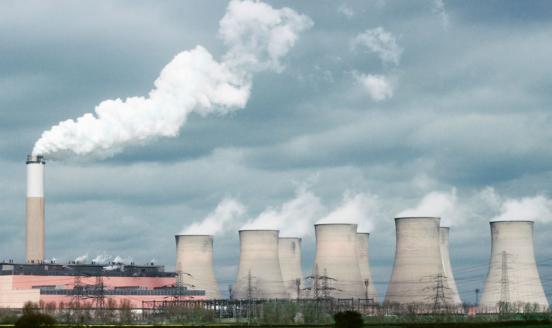A phase out of Russian oil may be less effective than a tariff at reducing Putin’s rents
A punitive tariff on all energy imports from Russia would be a better choice than a gradually phased-in embargo on selected fuels.
The European Union’s plan to target Russian oil in the context of its latest sanctions package makes sense as a way to step up pressure on Moscow. Oil is a major source of hard currency for Russia, and since the introduction of financial sanctions has become a vital lifeline for the Russian economy and a crucial funding source for the war.
The EU is reportedly considering an embargo on Russian oil, as opposed to a price cap or tariff. Russian oil could be banned by the end of the year, with restrictions on imports introduced gradually until then. This is far from the best option. Reducing purchases of Russian oil to zero over time might leave Russian revenues high while implying several negative short- and long-term consequences for the EU. Paradoxically, such an embargo might even result in a win for Russia, at least in the short-term, and a loss for the EU and the world’s economy overall.
Timing
The biggest flaw of the plan currently under discussion is that during the transition phase, oil prices in Europe and across the world could increase in anticipation of reduced Russian exports. This trend started already at the end of April, when oil settled higher because of the increased likelihood of an EU embargo. Higher prices cause pain in importing countries. What is worse, they might even overcompensate Russia for the gradual loss of volumes. Given the dynamic of the war, such short-term developments might matter politically in Russia, where the government budget is funded by such revenues. A second timing issue is that the gradual phase-in would also give Russia time to develop new oil exporting strategies, rendering the embargo less effective. US treasury secretary, Janet Yellen has therefore called for caution on the EU’s ban on Russian oil.
Coverage
A second problematic area would be what an oil embargo would cover exactly. Would it target seaborne crude oil, or also pipeline oil? And what about refined oil products? In short, what counts as ‘Russian oil’? Banning imports of Russian crude might be straightforward, but banning imports of already in short supply diesel from Russia might be much more difficult. Given that oil products are partly substitutes, tighter crude supply would increase their prices as well, possibly leading to overcompensation of the Russian volume losses. Targeting only Russian seaborne oil and not pipeline oil and oil products would substantially reduce the pressure on Russian export infrastructure.
Retaliation
The third problem of the embargo currently under discussion is the risk Moscow might retailiate by cutting natural gas supplies to the EU. The recent shut-offs of supplies to Poland and Bulgaria show that this possibility should not be dismissed. And while the EU in any case needs to stand ready to be cut off gas, a full embargo may increase the likelihood thereof.
In summary, a balanced and long-term embargo schedule might be much less useful politically than currently believed in many policy circles.
Alternative
Instead, a better alternative would be a more flexible tool that can increase/reduce the pressure on Russia depending on the situation in Ukraine. A punitive tariff on all Russian exports of crude oil, oil products and natural gas would tackle all the issues we have raised for a full embargo. It would immediately reduce Russian revenues. However, Russia would still have an incentive to export to Western buyers and would therefore be unlikely to quickly build new infrastructure to export fossil fuel to third countries. A tariff could also be adjusted depending on political developments. A punitive tariff on all energy imports from Russia would be a better choice than a gradually phased-in embargo on selected fuels.



